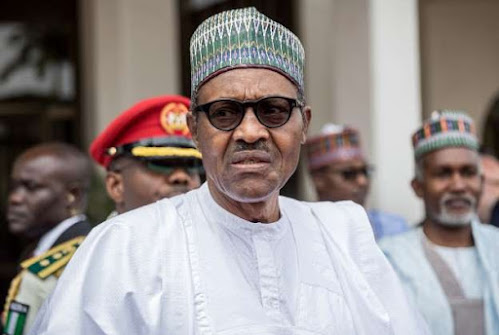By Joel Popoola
The 2023
election may feel like a long way off, but the battle to succeed President
Muhammadu Buhari is already underway.
But
who will step into his big shoes?
Just
recently, the influential international news agency, Bloomberg, asked the
question “is Nigeria falling apart?”
Unfortunately, it’s hard to argue that it isn’t.
*BuhariHowever,
the real question is “how are we going to fix it?”
How
are we going to fix an economy where unemployment is 33% and inflation is
running at 18%?
What
are we going to do to improve the lives of the 80 million Nigerians who live on
the equivalent of less than $2 a day – a figure the World Bank predicts may
rise to 100 million following Covid-19?
How is a nation economically dependent on oil going to face up to a post-oil future?
What
is to be done to repair an education system where more children are out of
school than any other country on earth?
And
critically, how are we to unite a nation that has in recent months seen youth
clashing with police, terrorist attacks in the north-east, herders attacking
farmers in the central belt, piracy in the Gulf of Guinea, separatism in the
south-east and kidnappings and corruption pretty much everywhere?
People
complain that President Buhari has no answers to any of these issues. But does
anyone?
Perhaps,
Nigeria can be healed with a combination of the technology of the future and
traditional south-eastern practice of the past – the Igbo Apprenticeship
System.
The Igbo
Apprenticeship System has been described as an example of “stakeholder
capitalism” – an economic system in which the aim of businesses is not just to
make money, but to elevate their communities and where successful businesses
aim to support the growth of other businesses in the local area and supply
chain, rather than crushing the competition.
Stakeholder
capitalism is underpinned by the idea that instead of accepting a society where
a handful of businesses or individuals are super-powerful, we aim for a society
where everyone is dependent upon each other, where everyone has an incentive to
co-operate, where everyone is involved and where everyone has a say.
The
idea that we will all achieve more if we work together is so basic we all teach
it to our children practically from birth. So, why has the concept become so
alien in our economy?
Inclusive
growth leads to shared prosperity by encouraging co-operation aimed at economic
growth – and everyone benefits!
More
importantly, the benefits to stakeholder capitalism aren’t measured in money.
While Nigeria has an average literacy rate of 62%, states where it is
commonplace regularly record literacy rates above 90%
Nigeria
needs a stakeholder society – a society where everyone has a say.
People
need to know that their voices will be heard. Leaders need to listen. But in a
complicated, diverse and dispersed modern world, both sides need technology to
make that engagement possible.
At the
digital democracy campaign I lead, we’re trying to develop the digital
platforms necessary to deliver a stakeholder society.
We
have created a free smartphone app called
‘Rate Your Leader’ which puts people in direct contact with
their elected leaders – making sure their voices are heard by the people who
make the decisions that affect their lives.
To
make sure that the conversation is courteous and constructive, Rate Your
Leader’s abuse-proof technology also makes insulting or offensive messages
impossible.
Rate
Your Leader also allows other registered local voters to contribute to these
discussions – letting local leaders know what matters most to the people who
elect them and accurately assess how widespread these views are. And voters can
even rate their elected officials on transparency and accessibility – helping
their peers to see what candidates are worth voting for.
The
app empowers electors and elected to come together to address matters of
community concern and to collaborate to make local areas better, as well as
immediately highlighting issues in need of addressing to the people with the
power to address them.
This
sort of engagement, which can be carried out from the comfort of the home at
the touch of a button, could be the first step towards a truly stakeholder
society.
The
problems faced by our nation can feel insurmountable but they are not, as long
as we aim to work together and utilise the technology of the digital age to
bring us together
Joel Popoola is a Nigerian tech entrepreneur and digital democracy campaigner. He is the creator of the Rate Your Leader app. Follow Joel on Twitter @JoPopoola


Nigeria cannot be fixed.
ReplyDeleteIf this can be achieved good but if not let everyone go, if igbos and yorubas can come together and fix themselves best
ReplyDelete